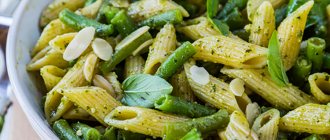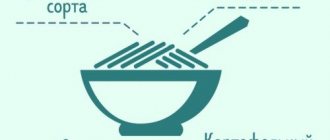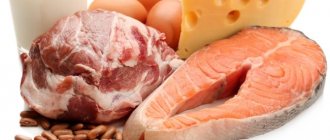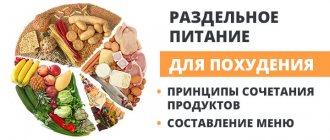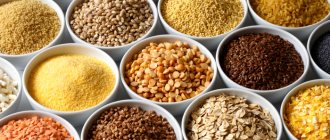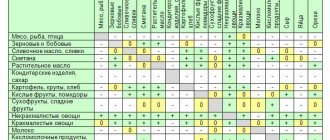As we have already written, the name vegetarianism has two variants of its origin. One – from the word vegetable (plant, vegetable). The Oxford Dictionary notes that the word came into widespread use after the creation of the Vegetarian Society in England in 1847. The Vegetarian Society itself claims that this term was derived from Lat. vegetus (vigorous, fresh, lively). Currently, it is used to refer to various nutritional systems based on the exclusion of meat products from the diet.
Varieties of vegetarianism
Veganism is considered the most uncompromising position in life regarding the consumption of animal products or fisheries. People who adhere to this philosophy do not eat meat or fish. Dairy products, eggs, and honey are also prohibited. The vegan diet consists exclusively of plant foods. This group contains individual restrictive movements with a special philosophy, such as:
- vegetarian raw food diet,
- fruitarianism.
In addition to strict vegetarianism, which categorically excludes eating the meat of living beings and other food products obtained from animals, the humane life position also includes softer vegetarian types:
- Lacto-vegetarian
(lacto-vegetarians) - exclude meat, fish and poultry eggs from food. - Ovo-vegetarian
(ovo-vegetarians) - do not consume meat, fish, milk and dairy products. - Lacto-ovo-vegetarians
are people who do not eat meat or fish, but add eggs and dairy products to their diet. This is the most common type of vegetarianism because this type of vegetarian diet is not as strict and limits the risk of deficiencies in the human body of vital nutrients. Those following this diet get their proteins from eggs and dairy products. Unlike strict vegans, they do not need to add artificial food additives to their diet to achieve a balanced diet.
Raw food diet
A raw food diet excludes the consumption of any foods that have been subjected to heat treatment - boiling, baking, smoking, frying - as well as any types of pickling and canning. Dried food without additives in the form of salt and seasonings (dried fruits, for example) and cold-pressed vegetable oils are considered completely “raw” by followers of this type of vegetarianism, that is, acceptable for consumption. The starting point for a raw food diet is the desire to build a “biologically natural” natural food chain, that is, to include in the diet what a person could eat without cooking in the wild. The basis of the diet is, as a rule, the same products as vegans.
( Although some “raw foodists” allow the consumption of meat, eggs and milk, of course, in raw form ). Among the acceptable methods of cooking: cereals or beans can be eaten sprouted; To do this, they are soaked in water or kept in a humid air environment. One of the varieties of this type of vegetarianism is a monotrophic raw food diet, when only one product is eaten at one meal, for example, only apples or only nuts. The concept of a raw food diet has gained popularity since the 1960s, partly as a way to combat the rise of a number of diseases, especially obesity.
Read more about the products included in the diet of raw foodists, the pros and cons of a raw food diet in our other articles!
Consumption of eggs and seafood

Separately, we should highlight the type of vegetarian diet Pesce-vegetarian. Pescetarians are people who refuse to prepare dishes from the meat of warm-blooded animals and birds. Their diet includes consumption of fish and other marine life. The diet of pescatarians includes the consumption of eggs and dairy products.
This type of diet is considered a transition from meat-eating to vegetarianism. The period of adaptation of the body to a new way of life will be gentle and will not cause stress. Nutritionists believe that moderate consumption of seafood with a plant-based diet is a complete and balanced diet for a healthy person. Subsequently, it is easier for a pescetarian to switch to a classic vegetarian diet, giving up fish and sea creatures.
conclusions
Thus, all types of vegetarianism have their own characteristics, as well as pros and cons. If a person sets a goal to switch to one or another type of vegetarianism, he needs to learn as much as possible about it. At the same time, it is important to determine for yourself not only the reasons that prompt such changes, but also to analyze how ready a person is for them. Before switching to any type of vegetarian diet, it is necessary to assess your health and readiness to seriously follow the principles of a particular diet.
An effective replacement for animal proteins
The human digestive system is adapted to digest animal proteins.
Refusal of meat and dairy products impoverishes the daily diet. People who unwisely switch to a vegetarian diet do not receive amino acids, which are found only in meat. Therefore, when switching to vegetarianism, it is necessary to include protein foods of plant origin in the menu. An effective replacement for animal proteins are plant analogues. One such complex protein is gluten, which is found in large quantities in wheat and other grains. Legumes - beans, peas, lentils - are also rich in plant proteins.
Soybeans, chickpeas, mung beans and quinoa are considered good sources of protein. This also includes nuts, seeds and all whole grains. Each of them contains a different type of amino acid. To eliminate the harm of vegetarianism from a lack of protein food, a balanced consumption of all types of plant proteins is recommended to compensate for animal protein.
Top plant-based foods rich in complex proteins:
- pumpkin seeds;
- legumes;
- tofu;
- peanut butter;
- greenery.
How to switch to vegetarianism? Vegetarianism for Beginners
Perhaps the first thing a person should determine for himself is the motive for switching to vegetarianism. If the reason is just a fashion for such a trend, then the transition to this food system will not last long.
The second common reason is improvements in health (for example, obesity). But even in this case, vegetarianism is not the best solution. There are many balanced nutrition systems that have animal products available. They will be less stressful for the body.
As noted above, vegetarianism is not only a nutritional system, but also moral components. Let's consider the main motives that encourage the transition to vegetarianism:
- Ethical component. It is based on pity for living beings, for our smaller brothers. Vegetarians cannot bear to eat food that is the product of the suffering of some living being.
- Economic component. According to research, if humanity completely eliminated or significantly limited the consumption of animal food, the planet would be able to avoid famine
- Impact on health. Vegetarians are fully confident that such a nutritional system will help them improve their health and look younger.
- Religious aspect. In this case, vegetarianism is a way of training your own willpower, the ability to give up food weaknesses
Compensation for vitamin deficiency

The lack of this microelement in the human body is dangerous for the health of bones and teeth. A lack of the mineral can cause hair loss. For vegetarians who do not consume dairy products, calcium saturation comes from nutritional supplements and vitamins. Plants that contain calcium:
- soy milk;
- sesame;
- parsley;
- almond;
- hazelnut;
- garlic;
- cabbage;
- mustard.
The source of iron for vegetarians are products of plant origin:
- spinach;
- white beans;
- lentils;
- chickpeas;
- cashew nuts.
Good iron content in dried fruits is:
- dried apricots;
- prunes;
- raisin.
For better absorption of iron from plant foods, it is necessary to balance the diet by consuming foods high in vitamin C.
The body needs zinc for the proper functioning of the immune system. Plant foods that contain it:
- beans;
- pumpkin seeds;
- sprouted grains.
Vitamins B12 and D, necessary for the proper absorption of fats, proteins and carbohydrates, are not found in foods of plant origin. Therefore, strict vegans who completely exclude the consumption of dairy products and eggs will have to compensate for the deficiency of these vitamins with the help of artificially enriched dietary supplements.
Lacto-ovo vegetarianism, benefits and harms
This is undoubtedly one of the most gentle ways of vegetarianism. Firstly, a person can honestly adhere to the stated principle of non-violence. Secondly, such a nutritional system allows you to have a complete diet.
- Eggs contain many nutrients, protein and vitamins, which are so lacking in vegetarianism. Eggs also contain vitamin B12.
- Dairy products contain moderate amounts of animal fat, calcium, protein and minerals
- This type of vegetarianism will allow you to diversify your diet and not infringe on yourself in preparing many dishes.
- However, there is no need to overuse eggs to replenish all vitamins. After all, eggs contain a lot of cholesterol, which is not good for your health.
Acceptable Products Table
| Types of Vegetarianism | meat fish | milk/cheese | eggs | plant food | sugar/honey |
| Veganism | forbidden | don't use | don't use | any type of plant food | don't use |
| Lacto-ovo vegetarianism | forbidden | acceptable | acceptable | raw and cooked | acceptable |
| Ovo-vegetarianism | forbidden | don't use | acceptable | raw and cooked | acceptable |
| Lacto-vegetarianism | forbidden | acceptable | don't use | raw and cooked | acceptable |
| Pescetarianism | Fish and seafood | acceptable | acceptable | raw and cooked | acceptable |
| Raw food diet | forbidden | don't use | don't use | without heat treatment | unacceptable |
| Fruitarianism | forbidden | don't use | don't use | only fruits and nuts | unacceptable |
Fruitarianism
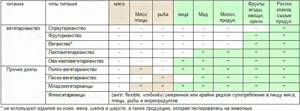
His followers eat not only fruits, as can be understood from the name, but the fruits of plants, mainly, by the way, raw; in addition to fruits, their diet includes berries, fruit vegetables (tomatoes, cucumbers, sweet peppers), nuts and seeds; Fruitarians sometimes eat legumes and grains .
There is even a quantitative indicator here; one can be considered a fruitarian if unprocessed fruits make up 3/4 of the diet. Fruitarians have one more point, namely, that in their opinion, only those fruits are suitable for food for which the plant itself does not need to be destroyed. And, if you review all types of vegetarianism, fruitarianism is perhaps the strictest among them. According to some sources, fruitarian colonies existed already in 1924.
Example of a daily diet
The basis of a vegetarian diet is considered to be products of plant origin containing complex proteins - these are legumes and whole grains.
They serve as the basis for preparing lunch and dinner. We offer an example of what a vegetarian can eat during one day: Breakfast:
- corn or wheat porridge with water or milk, depending on the type of diet. If desired, add fresh berries and fruits, nuts or candied fruits to the prepared porridge;
- a glass of freshly squeezed orange or apple juice.
Dinner:
- bean or bean soup with parsley and asparagus, served with whole grain bread croutons;
- dumplings with new potatoes, seasoned with soy sauce;
- fruit cocktail.
Afternoon snack:
- light vegetable salad of spinach and kale,
- berry mousse.
Dinner:
- beet and carrot cutlets with boiled lentils,
- green salad,
- mint tea with lemon.
According to clinical studies, a meat-free diet limits the risk of cardiovascular disease.
But often people do not give up meat, fearing that their daily menu will become boring and monotonous. Such fears are unfounded. There are many vegetarian recipes that can satisfy any gourmet. With the right approach, a vegetarian diet will be well-balanced, and the food will be tasty and healthy.
The benefits and harms of vegetarianism
Despite the fact that scientists and doctors from many countries have conducted experiments on the effects of vegetarianism on health, no clear conclusion has been reached. Some experts believe that vegetarianism is the ticket to longevity. Others say that this is a way to develop many chronic diseases. Where is the truth? Different points of view should be considered.
Benefits of vegetarianism:
- Prevents obesity and cardiovascular diseases
- Does not increase cholesterol levels
- Vegetarianism does not contribute to the development of diabetes
- Research shows that vegetarians have a more positive outlook on life and an optimistic mood.
- Thanks to a plant-based diet, a person absorbs a lot of fiber
- Along with fruits, vegetables and herbs, a sufficient amount of vitamins is supplied
Harm of vegetarianism:
- Vegetarianism often leads to a lack of protein in the body.
- As a result, muscle tissue begins to break down
- Lack of fat can lead to endocrine system diseases
- Plant foods do not supply the body with vitamin B12, which is necessary for normal life.
What is veganism?
Veganism is a stricter form of vegetarianism. Vegans do not consume or use any animal products. The Vegan Society defines it as “a way of life that seeks to exclude, as far as possible and practicable, all forms of exploitation and cruelty to animals for food, clothing or any other purpose.” Vegans strictly avoid consuming any food or drink that contains:
- • meat;
- • poultry;
- • fish and shellfish;
- • eggs;
- • dairy products;
- • honey;
- • insects;
- • rennet, gelatin and other types of animal protein;
- • fats obtained from animals.
Strict vegans also extend these principles beyond their diet and try, where possible, to avoid any foods that are directly or indirectly linked to human use of animals. These products may include:
- • Leather Products;
- • wool;
- • silk;
- • beeswax;
- • soap, candles and other products containing animal fats;
- • latex products containing casein;
- • cosmetics or other products that manufacturers test on animals.
Many vegetarians also apply some of these principles to their lifestyle, such as avoiding leather goods and products that involve testing on animals.
Tips for switching to a plant-based diet

Unfortunately, most people are not born vegetarians. At the suggestion of modern pediatricians, caring mothers stuff their children with meat purees and broths, without thinking at all whether these products are healthy for the body. And it can sometimes be very difficult to resist the pressure of the public, the medical council and the staff of preschool and school institutions, because each of them considers it necessary not only to express, but also to impose in every possible way their opinion in the fictitious concern for children's health.
A vegetarian mother is perceived almost as a villain who starves the unfortunate baby, offering him complete and healthy plant food. That is why instilling the principles of vegetarianism from birth is very difficult, although it is useful for a young naturalist who, from birth, strives to take care of our little brothers, play with them, feed them, but not eat them. American vegan activist Gary Yourofsky spoke about this state of affairs very unequivocally: “Put a live rabbit and an apple in the crib of a two-year-old child. If a child eats a rabbit and plays with an apple, I will admit that I was wrong and eat the steak.”
However, it is never too late to become a true vegetarian. It doesn’t matter what numbers appear on your passport - 15, 30 or 50 - it’s never too late to stop violence. Simply by refusing a grilled steak or barbecue, you can save the life of at least one representative of the animal world, and this will be the first step towards a meaningful and fulfilling life. It is not at all necessary to switch to strict vegetarianism right away - there are many programs that allow you to do this progressively and gently.
Where should you start when switching to vegetarianism?
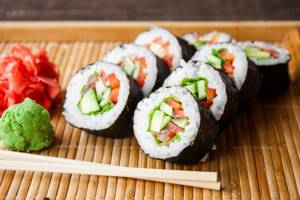
Before accepting a new philosophy of life, you need to become imbued with its ideas, principles and concepts. Motivation is the best help that will help you initially cope with bodily temptations, cleanse the body of putrefactive bacteria that appeared in the body from eating meat, and begin to think and live in a new, more spiritual and meaningful way. In this endeavor, the best assistant will be thematic literature, a mentor who has successfully introduced this philosophy into his life, a vegetarian message from like-minded people, or examples of famous and respected people around the world who adhered to this diet.
TOP 5 books that beginner vegetarians must read:
- Jack Norris and Virginia Massina, "Vegetarian for Life." This work will clearly explain all the benefits of plant foods, teach you how to enjoy a vegetarian diet and tell you how to diversify your diet.
- Katie Freston, "The Vegetarian" Delightful in its simplicity, this book by the famous vegetarian teaches readers how to remain healthy and cheerful people throughout their lives.
- Alexandra Romanova, “Vegan for Beginners.” After reading this book, the future vegetarian will have no questions about whether he needs a plant-based diet. Adapted for domestic readers, the book will tell you that a vegetarian diet is suitable for everyone who dreams of a long and fulfilling life, and will teach you how to cook simple, unpretentious and at the same time incredibly tasty dishes, without sacrificing defenseless representatives of the fauna.
- Thomas Campbell, "China Research into Practice: Making Healthy Life Easy." The work will not only tell you why to stick to vegetarianism, but also teach you how to change your diet to a healthier one.
- Leo Tolstoy, "The First Stage". The book will be of interest to all lovers of Russian classics, including experienced and novice vegetarians. Being a well-known supporter of plant foods, Lev Nikolaevich was one of the first to set out the philosophy of non-violence in his work, which in many ideas, logical conclusions and justifications is significantly ahead not only of the author’s contemporaries, but also of today’s knowledge.
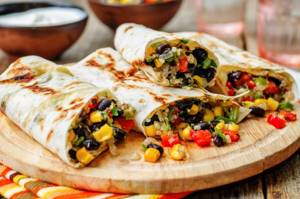
How to give up meat? Step-by-step instruction
Despite the fact that every serving of a dish with added meat costs someone’s life, radically and abruptly changing your diet can be quite difficult, since the body, accustomed to harmful foods of animal origin, will resist cleansing. The fact is that over the years of meat-eating, a special putrefactive microflora has formed in the gastrointestinal tract, which promotes the breakdown of foods high in fat and protein, but is practically indifferent to plant foods. In vegans, on the contrary, bifidobacteria predominate in the intestines, which synthesize vitamins and other useful microelements, restoring the body from the inside. However, for the gastrointestinal microflora to rebuild, it will take time and patience.
Stage 1. Excluding meat from the menu
Since the body is accustomed to eating fatty foods high in protein, you should not immediately switch to low-calorie salads, vegetables and fruits. At this stage, a small trick helps a lot: as soon as you want to return to the meat menu, you should prepare familiar dishes from new products. For example, beet cutlets, rice and carrot meatballs or bean stew. In addition, at this stage it will not be possible to completely balance your diet, since the body will require its usual protein intake. You shouldn’t torture yourself and endure hunger - nuts, beans, peas, soybeans and lentils can completely replace meat, providing the body with everything it needs.
At the first stage, the gastrointestinal microflora will begin to slightly change its composition, but complete cleansing will require a more balanced diet, since artificially increased protein consumption is fraught with metabolic disorders. Such a menu is acceptable only at first, when the body is just getting used to doing without meat. Typically this period takes no more than a week.
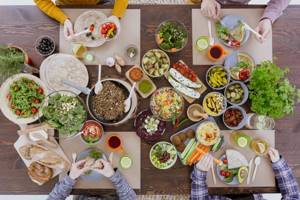
Stage 2: Nutrient Balance
Having learned to live without meat, you should think through your diet in detail in order to provide your body with the necessary nutrients. Many cookbooks or Internet portals with a selection of a variety of hearty and nutritious dishes prepared from vegetarian products will help with this.
This period will be the most difficult, since the body will have to relearn digestive processes. During adaptation, breakdowns and feelings of hunger are most possible despite a hearty and nutritious meal - this means that the body is still adjusting, accepting a new philosophy. If the temptation is too strong, you should watch motivational videos or pictures of animals suffering in slaughterhouses - this will curb your appetite and eliminate doubts.
Stage 3. Acceptance and rethinking
As soon as the body and mind have been cleansed of cruelty and violence, and the body has learned to perceive plant foods as the only possible one, the newly-minted vegetarian will definitely feel a surge of strength, lightness and vigor. Your health will improve, swelling, rapid heartbeat and heaviness throughout the body will go away, and waking up in the morning will become much easier. This is the moment of enlightenment when it becomes clear that life without meat is natural, pure and fulfilling.
At this stage, you can start experimenting with varieties of vegetarianism, trying fruitarian, macrobiotic recipes or trying out the principles of raw food nutrition, perhaps some of them will appeal to you. However, it is not at all necessary to switch to a more strict diet, the main thing is that the rest of the planet’s inhabitants do not suffer in the process of preparing food.
Summarize
- Vegetarianism is a primarily plant-based diet that may include or exclude certain animal products, depending on the type.
- Plant-based diets can improve health, help protect the environment and support animal welfare.
- Vegetarian diet options exclude meat but may include eggs, fish, dairy, or a combination of these.
- The flexitarian diet is plant-based but includes small amounts of animal products, including meat.
- A vegan diet does not include any animal products at all and goes beyond nutrition.
- Choosing a vegetarian diet can have many health and ethical benefits. The best diet for you depends on factors such as quality of nutrition, cost, ease of use, and how easy it is for you to follow.
Tags: Vegetarianism
- Related Posts
- The Complete Guide to the DASH Diet for Beginners
- Lactose-free diet: what you can eat and what you can’t?
- Flexitarian diet: benefits and harms, menu
« Previous entry
Types of vegetarianism (its motives)
Okay, I think everything is clear with the types of vegetarians. Now let's talk about the types of vegetarianism. They are also different. It is because of them that people switch and stick to a meat-free diet.
Vegetarianism for health
More and more people are becoming vegetarians for health reasons. That is, the doctor said: “You have an incurable disease, medicine is powerless to help you.” A person understands that vegetarianism or a raw vegan diet is the only way to slow down or cure the disease. Therefore, a person undertakes to improve his unhealthy diet, which is often the cause of his illness.
It happens that a person does not yet have any serious diseases, but looking at the statistics of diseases and mortality, he wants to prevent them in himself. It is also possible that a person simply wants to lose weight this way. Therefore, he chooses vegetarianism as a healthier diet.
Ethical vegetarianism
Such people choose vegetarianism to avoid causing suffering and to encourage the exploitation and killing of animals. There are different levels of ethics - some do not eat meat, while others also do not eat cheese, do not wear leather and do not go to the circus. The extreme form is protests and conflicts against meat-eaters.
Religious vegetarianism
There are different religions, communities and sects where eating meat is prohibited. For example, Buddhism, Hinduism, Seventh-day Adventists, etc. Such people become vegetarians because they believe that it is bad.
Ecological vegetarianism
This type of people believes that raising animals has a very bad effect on the environment and the environment around them. It’s hard to disagree with this, because the meat industry incredibly pollutes and depletes nature and natural resources (water, land).
Economic vegetarianism
There are people who want to help their country save money and resources on raising livestock for human consumption. Personally, I don’t know such people, but this also happens.
What is the meaning of vegetarianism
It's not just a diet, vegetarianism is a philosophical movement against the killing of animals. Adherents of this culture advocate the rights of all living beings and humane treatment of them in any manifestation. Vegetarians oppose farmed slaughter and excessive meat production. Arguments regarding poor living conditions for animals are especially relevant for industrial farming.
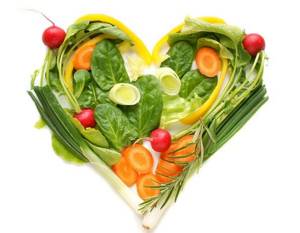
Some ethical vegetarians compare animals with people - in their opinion, the animal does not want to die, but has no choice and is sent to slaughter. An animal has the right to enjoy life and exist. It should not suffer and be killed just to feed humans when there are better food sources for humans. Experts in the field of animal neuroscience are unanimous that many species, especially mammals and birds, have brains with similar structures to humans, indicating that these animals experience conscious experiences like humans, including pain and emotion.
By becoming a vegetarian, a person protects the animal world and shows love for the surrounding nature. Vegetarianism is chosen for moral, medical, environmental or economic reasons. A varied vegetarian diet is suitable for people of all ages. Meat dishes and seafood are excluded from food. Vegetarians allow the consumption of eggs and milk.



